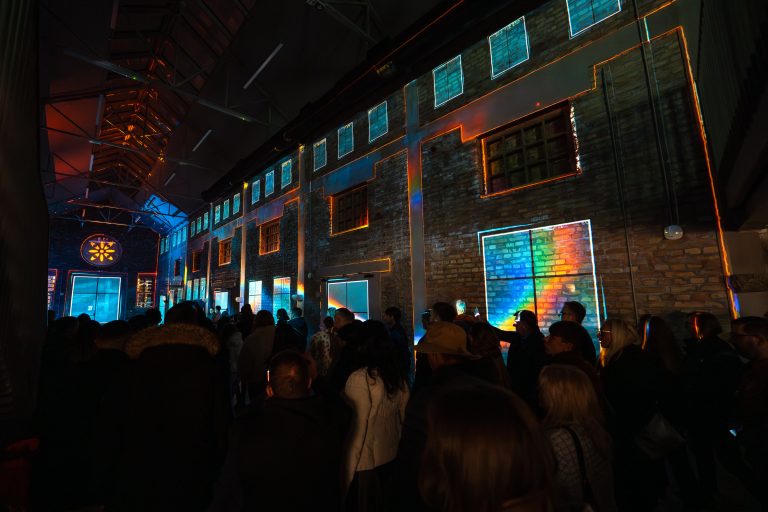The day after the beginning of spring, we celebrate World Poetry Day, when we pay tribute to poets who have left a deep mark on the history and culture of our city. Let us look into the world of poetry of local artists and find out what kind of lives the Novi Sad poets led.
Jovan Jovanović Zmaj
Jovan Jovanović Zmaj (1833-1904) was one of the greatest lyricists of Serbian romanticism, but also a playwright, translator, and doctor, who also edited literary, political and children’s newspapers. If you walk down the main street of Novi Sad, in his hometown, you will see a monument that was erected in honour of the poet and is located in front of the Bishop’s Palace in Zmaj Jovina Street.
His greatest love, besides writing wonderful poems for children, was Ruža Ličanin, whom he married in 1862, on St. Sava Day, a year after they met. The wedding guests made sure that the whole of Novi Sad did not sleep for three days and three nights. He dedicated one of his most beautiful poems, Kaži Mi, Kaži, to Ruža, who bore him five children, as well as other poems in which he describes the happiest period of his life. Overwhelmed with love and joy, Zmaj wrote a collection of love poems called Đulići, naming it after the Turkish word for rose – Đul.
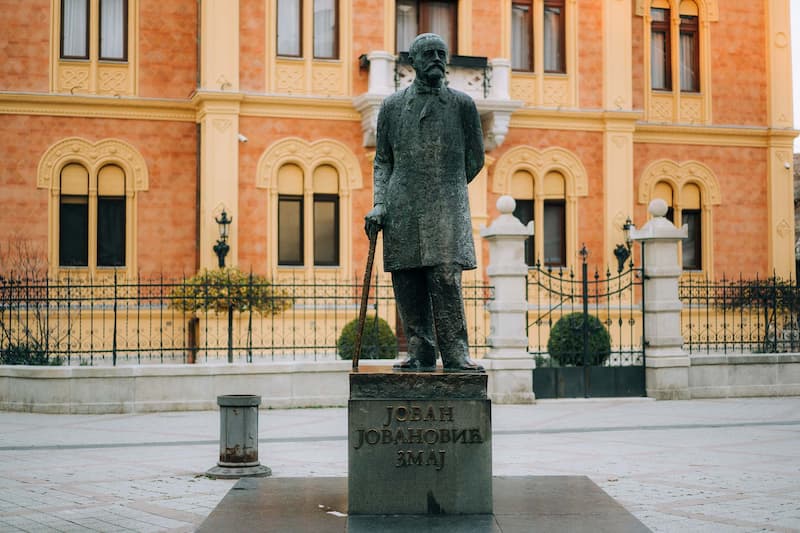
Unfortunately, the happiness was short-lived, as the family suffered a terrible loss. Namely, Zmaj and Ruža lost four children, who died of illness, and then his wife died due to great mourn for the children. He was left alone with his daughter Smiljka, but she also passed away at the age of two. It was sadness and regret for all his lost roses that led him to write the collection Đulići Uveoci.
In addition to lyrical poems, he wrote satirical and political poems, and he was remembered as the first writer in Serbian literature who created poetry for children. Sremska Kamenica, where he died, used to be called Zmajeva Kamenica in his honour, and today you can visit his house, which has been turned into a museum, as well as theDeca Čika Jovi monument, which shows the poet giving a book to a child.
Laza Kostić
One of the most significant Novi Sad poets, as well as a lawyer and journalist who spoke seven languages, Laza Kostić, was born in Kovilj in 1841. Across the road from his birth house, there is the Kovilj Cultural Station today. Although his work belonged to the era of romanticism, it was different and often outside the standards of the poetry of that time, which is why they often said that he was ‘completely on his own’. He was severely criticized during his lifetime, imprisoned twice, and only after his death was he declared one of the best and most original Serbian poets.
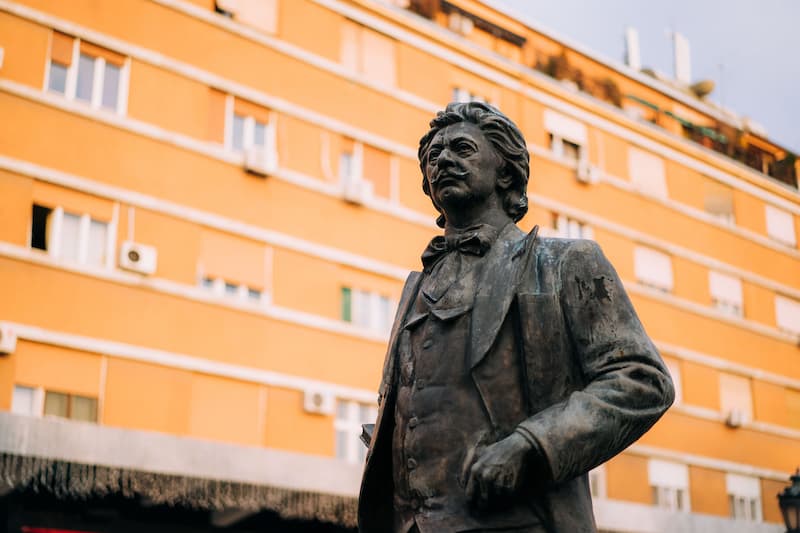
This great man remained inscribed in the bohemian past of Novi Sad, with his stories and numerous anecdotes. The girl who fell in love with him was Lenka Dunđerski, 30 years his junior, the daughter of his friend. Realizing that he also had deeper and deeper feelings for her, and due to the big difference in age and the position he was in, he decided to move away and married the rich Juliana Palanački. Not long after his wedding, Lenka tragically passed away, and he, visibly shaken, began to write one of his most beautiful poems, Santa Maria della Salute, saying goodbye to Lenka. He died in 1910. Every year at the beginning of June, the Laza Kostić Days event is held in Sombor.
Miroslav Mika Antić
Rebel and bohemian at heart, charming and talkative poet who made magic out of life, writer, screenwriter and translator – all this was Miroslav Mika Antić, who was born in Mokrin in 1932. His poetry is often characterized as sentimental, sincere and emotional, and he mostly wrote about love, nature and life, in simple language that everyone can understand. Many claim that he lived his poetry. He published his first poem in 1948 as a 16-year-old in the Belgrade magazine Mladost, and his first book of poems, Ispričano Za Proleća, two years later. However, one of his most outstanding works is the collection of love poems Plavi Čuperak, for teenagers as well as adults, written in the 60s of the last century.
For Miroslav Antić, every love was his first love, he loved women and had a loving nature. He married three times and had six children. This fantastic poet left behind numerous verses and profound quotes for which he was known, and which will guide some new generations throughout life.
Few are those who understand the limits of freedom. Those who understand the freedom of limits are even rarer. Mika Antić
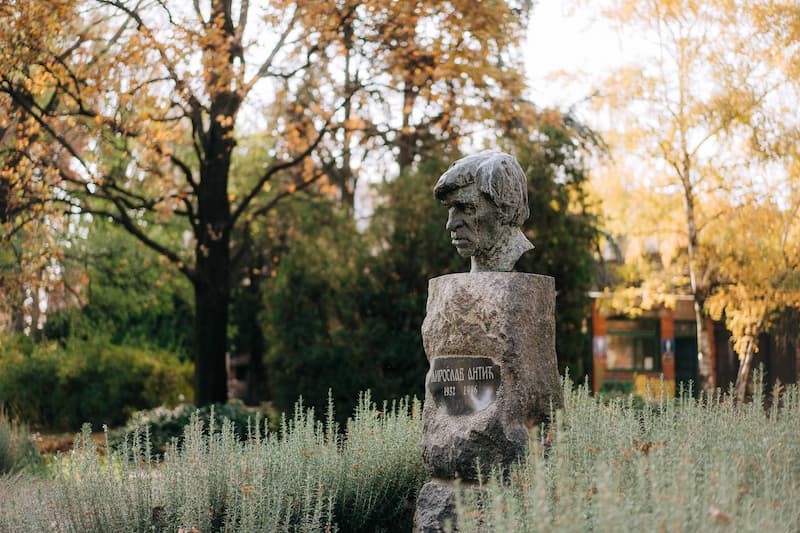
Anica Savić Rebac
‘Stella Rossa’ of Serbian poetry, Anica Savić Rebac (1893-1953) was a woman who was ahead of her time. In her childhood, she was called a child prodigy, because she was an intellectual of exceptional potential from an early age. Thanks to her father, who at one time was the secretary, then the editor of the Letopis Matice Srpske, Anica was in contact with writers, painters and educated people of that time since she was a child. She grew up with Uroš Predić, Jovan Jovanović Zmaj, Sima Matavulj and Laza Kostić. She earned her doctorate in Belgrade and worked as the only female professor at the University of Belgrade. A woman of true education, a philosopher and an esthetician of true competence, Anica was a poet whose poems are testimony to some experiences and knowledge beyond poetry. Her husband, Hasan Rebac, whom she married in 1921, was of the Muslim religion, and their marriage shocked Anica’s family.
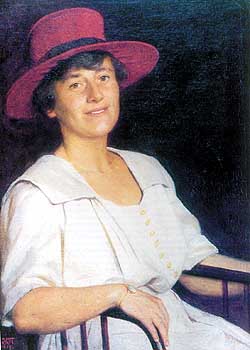
She has always affirmed love as the highest value of existence. Thus, she ended her life after her husband became seriously ill, believing that life is not worth living if we lose our loved ones.
Branko Radičević
In addition to Jovan Jovanović Zmaj and Laza Kostić, Branko Radičević (1824-1853) was the most important poet of Serbian romanticism, despite his very short life. He wrote love and patriotic poems, and when he fell ill with tuberculosis, he also started writing sad songs (elegies). He received his higher education in law studies in Vienna, but Sremski Karlovci and nearby Stražilovo marked his childhood, which, obviously, had a great influence on Branko’s works, the most famous of which is Đački Rastanak. That is exactly how Stražilovo became famous in Serbian poetry. At the foot of Stražilovo, next to the Stražilovački (Ešikovački) stream, there is his monument. The poet is shown with a lyre in his hand. Vuk Karadžić’s daughter, Mina, was his other half with whom life never brought him together. He remained thirsty for life, for mischief, for the passion he wrote about. He was full of unfulfilled desires and ambitions. He became a famous poet who died of an incurable disease at the age of 29, because of which, unwilling to come to terms with certain death, he left his law studies behind and enrolled in medicine hoping that he would be cured.
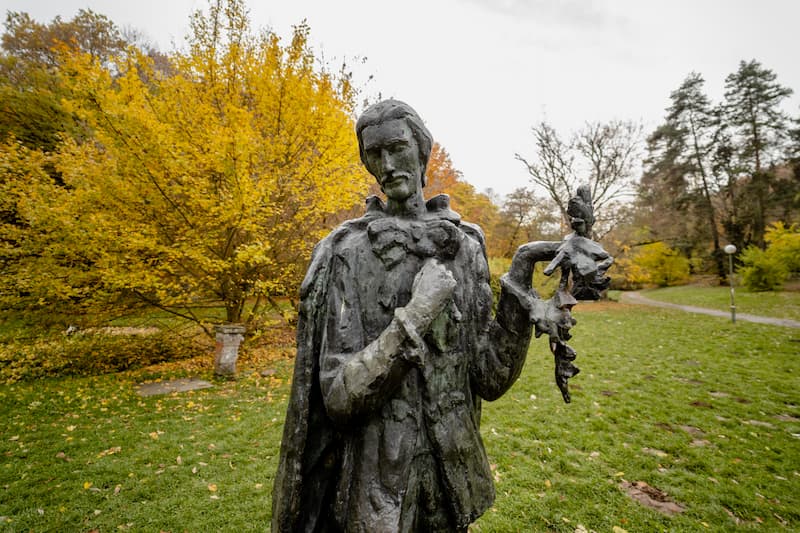
Milica Stojadinović Srpkinja
Serbian heroine known for her patriotic poetry, Milica Stojadinović Srpkinja, created in a period when female poets were rare in Europe. She was born in Bukovac in 1828 or 1830 (it is not known for sure), but she was extremely attached to Fruška Gora and Vrdnik, where she spent most of her life, which is why she was often called the ‘Vrdnik Fairy’. On Vidovdan 1912, a monument to her was erected near Irig, which is the first monument to a woman in Serbian culture.
Vuk Stefanović Karadžić loved her as his own child and called her ‘my daughter from Fruška’, and Milica and Vuk’s daughter Mina were good friends. She was a rarely educated woman of that time, she spoke German and translated Goethe and Balzac, and she could also play the guitar. She published her first works as a thirteen-year-old girl. The main feature of her poetry, but also of her life, was her love for the Serbian people. Her role model was the aforementioned poet Branko Radičević, but her attention was also drawn to the work of J. J. Zmaj. She remained an inspiration to many female authors from the beginning of the 20th century, up to contemporary literature, thus the writer and director Vida Ognjenović immortalized her with the Poetess play.
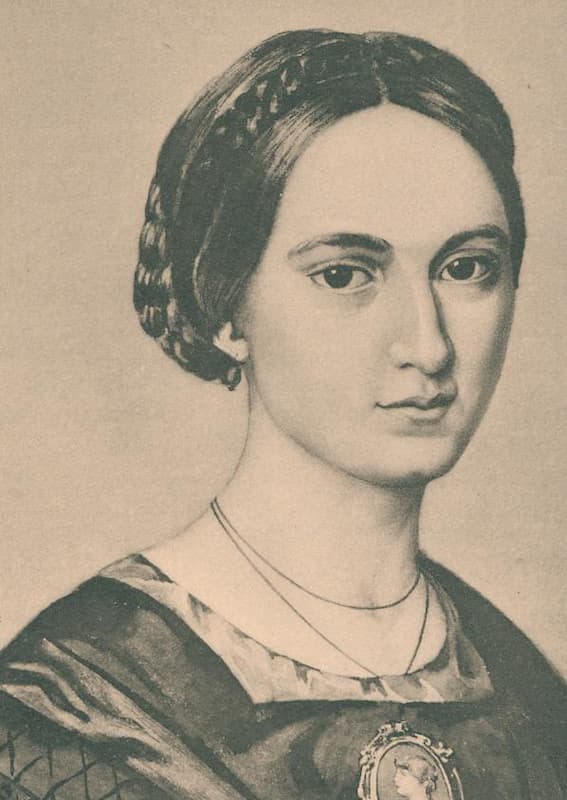
Đorđe Balašević
We could not bring the list of the most significant poets of Novi Sad to an end without the Pannonian sailor Đorđe Balasević, with whose songs and music many generations grew up. One can write endlessly about the creativity and life of this singer-songwriter, but also about his Novi Sad, and in addition to the many beautiful songs he left to us, Balašević will also be remembered for his witty attitude and many cute quips. Therefore, on today’s poetry day, we end the story with a song about Novi Sad.
Author: Marina Marić
Photo: Jelena Ivanović, Wikipedia

